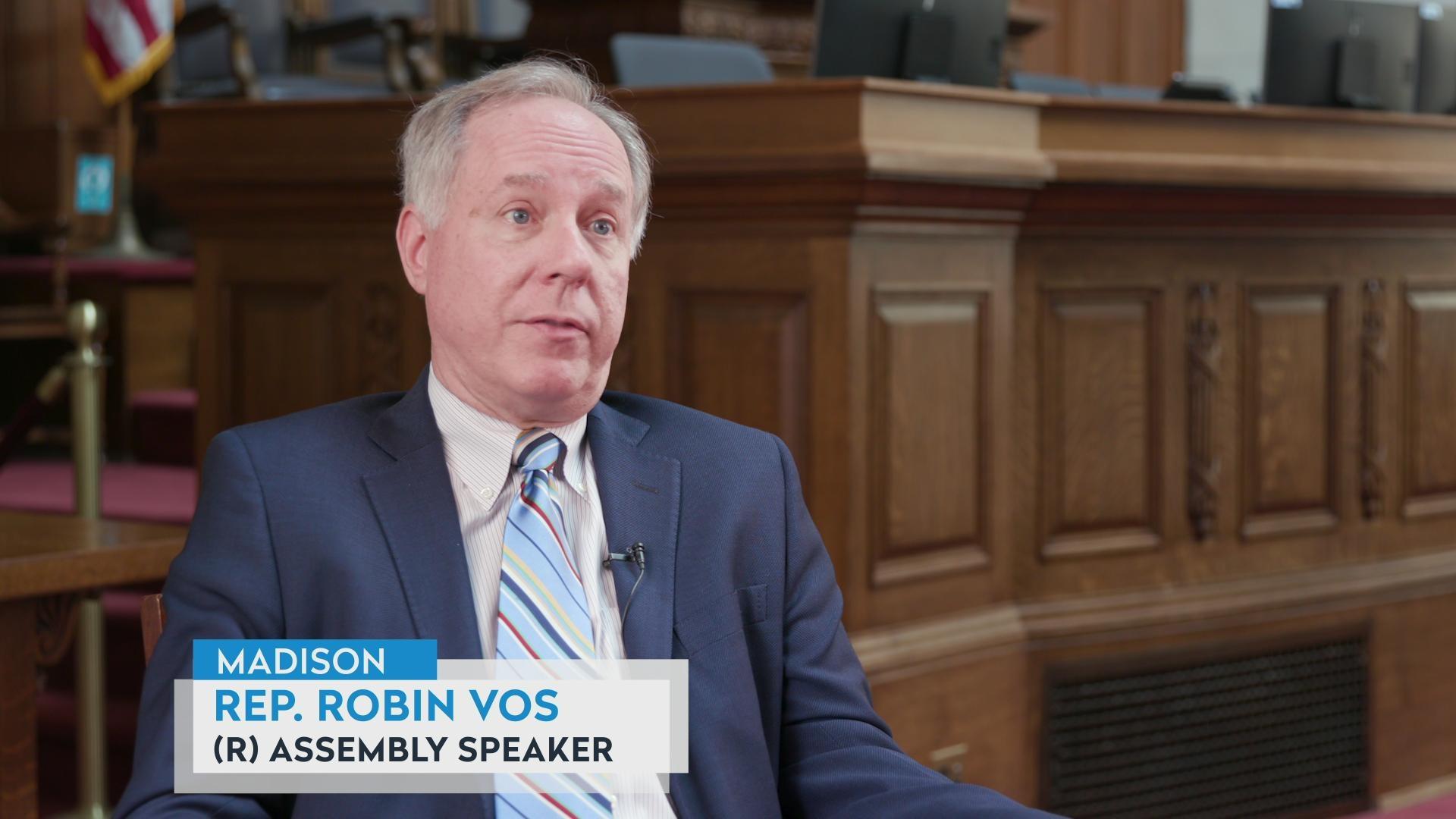Frederica Freyberg:
Jobs and the economy are always key issues in any election. Now the University of Wisconsin College of Letters and Science is launching a new initiative to improve career planning and job outcomes for more than 16,000 students spanning 39 departments. The effort comes on the heels of questions nationally about the value of a liberal arts degree. Those students tend to have a harder time finding a job than their counterparts in technology, medicine and business. Earlier this week, I talked with Rebekah Pryor Pare, the assistant dean and director of the College of Letters and Science career initiative. I started by asking the intent of the program.
Rebekah Pryor Pare:
Well, the current initiative is a transformative effort to ramp up the way in which we are preparing our students for their next steps after college and for a satisfying life.
Frederica Freyberg:
What are the prongs of the initiative?
Rebekah Pryor Pare:
Well, there are three that I can tell you about today. We’re doing many, many different efforts. But the first thing that we’re doing is working with the University of Wisconsin survey center to collect data on our alumni. And this is a really pioneering effort here in the College of Letters and Science, primarily because of our size. But what we’re looking at is capturing how our alumni are faring, particularly one year out, and eight, nine and ten years out in the job market. What kind of life satisfaction they have, what do their careers look like. We’re using that information to help inspire students in a variety of career paths. The second thing that we’re working on is a second year career development course called Taking Initiative. And this is a course that we’re piloting this spring semester for approximately 400 students, and we are hoping to ramp it up for our entire sophomore class, around 4,000 over the next few years. This is a course that teaches students about the value of the liberal arts degree, the skills that it will afford them and how to translate those skills to the world of work. Students will start with that and move all the way through learning how to research organizations, how to write resumes and cover letters and how to write applications for jobs. So they get that foundation in their second year so that they can really leverage their third and fourth year in terms of internships and experiential education and academic course work. And then the third project that we're working on is helping our students build professional networks. We have this really wonderful, untapped resource, our alumni. We have over 190,000 living alumni. Many of them are here in Wisconsin and in the Midwest. And they are really eager to help our students. We know that they are mentors, they're career advisers, they're industry experts, and we're working really hard to think about creative ways to bringing them in to help students with that transition out of college.
Frederica Freyberg:
How overdue is this initiative?
Rebekah Pryor Pare:
It feels very overdue. This is an effort that has been, I think, long in the making. There have been a number of different size efforts and different pockets of the college. And our new dean, Dean Karl Scholz, dean of the College of Letters and Science, has a real vision for the way in which we can support our students and move this forward. And what’s that transformational about it is because the dean has made this one of his signature priorities, we have really leveraged the power of our faculty and staff, our alumni, our lead administrators, our student leaders to come together, really, in the service of the students. It’s an amazing cooperative effort. For a college our size with some 16,000 undergraduates, it is incredibly transformational and exciting. We really believe we’ll change lives.
Frederica Freyberg:
So will there be a lot more advisers and that kind of thing for the students?
Rebekah Pryor Pare:
That’s part of the plan. Yup. So I mentioned those three core initiatives. That’s where we’re starting. But we are in the process now of looking at ways in which we can expand the number of career advisers, perhaps around industries, certainly partnering with our departments. These are important pieces to help students along the way.
Frederica Freyberg:
What kinds of skills of a liberal arts major are sought after by employers? Because, you know, people always talk about, really? You’re going to go and major in art?
Rebekah Pryor Pare:
Right, exactly. Well, I’ll tell you. Over the last year I’ve talked to numerous employers and I’ve talked to numerous alumni that hire and are in managerial roles today and leadership roles in corporations across the United States, and we hear the same thing again. They tell us, hey, you know, I can teach anybody about the product that we have here, but I can’t teach them how to research competitive products. I can’t teach them how to think critically about the material that they’re receiving or take vast quantities of material and digest it into bite-size pieces for us. I can’t teach them to make ethical decisions and then communicate those decisions wisely. These are things we need liberal arts students to do for us. We hear this time and time again. You can substitute the example I had with selling a product or talking about a product with countless different examples, from scientists and researchers and astronomers all the way through sales and marketing. It’s very, very impressive. And the liberal arts degree does transcend and prepare students for all kinds of industries.
Frederica Freyberg:
So it’s okay to major in philosophy or history, and still get a job?
Rebekah Pryor Pare:
It’s absolutely okay to major in philosophy and history. The last thing we want our partners to be– our families, our parents, our students to be saying is these majors don’t have value in the marketplace. But when we look around at who our CEOs are of these large corporations, they are our poli-sci majors, our psychology majors, our history majors, our English majors. These are the people that are moving this country forward and are industry leaders. And we’re very proud of them.
Frederica Freyberg:
Rebekah Pryor Pare, thanks you very much.
Rebekah Pryor Pare:
Thank you.
Search Episodes
News Stories from PBS Wisconsin

Donate to sign up. Activate and sign in to Passport. It's that easy to help PBS Wisconsin serve your community through media that educates, inspires, and entertains.
Make your membership gift today
Only for new users: Activate Passport using your code or email address
Already a member?
Look up my account
Need some help? Go to FAQ or visit PBS Passport Help
Need help accessing PBS Wisconsin anywhere?

Online Access | Platform & Device Access | Cable or Satellite Access | Over-The-Air Access
Visit Access Guide
Need help accessing PBS Wisconsin anywhere?

Visit Our
Live TV Access Guide
Online AccessPlatform & Device Access
Cable or Satellite Access
Over-The-Air Access
Visit Access Guide
 Passport
Passport


















Follow Us